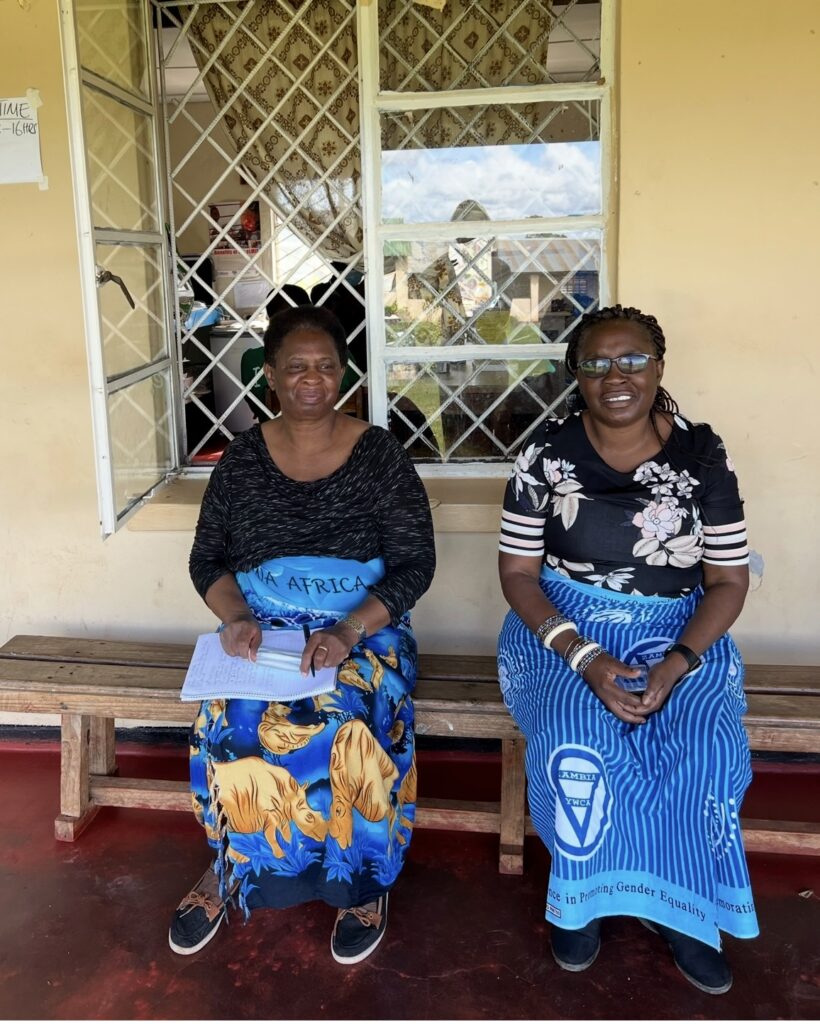
Namukolo Concepta Kwaleyela is an Associate Professor of Nursing and Midwifery with a passion for Women’s Health (Seen in the picture with her mentor, Margaret). She is an accomplished academic and researcher with a PhD in Health Studies obtained from the University of Nottingham in UK. Among the many positions she holds, Namukolo is the current Dean of the School of Nursing and Midwifery at Mulungushi University in Zambia, as well as the President of the Midwives Association of Zambia. With experience spanning over three decades, coupled with her commitment to elevating women’s health standards she is now working on a new project. Along with colleagues from three Universities in Europe and three in sub-Saharan Africa she has embarked on a European Union funded project fondly known as ‘eMAMA!’ The aim of the project is to enhance maternal mental health in sub-Saharan Africa. She was introduced to the world of female mushroom hunters in Zambia when assisting a graduate student from the Norwegian University of Science and Technology (NTNU) in Trondheim. Since then, one of the projects very close to Namukolo’s heart in relation to empowering women and girls, is to foster and encourage local interest in cataloguing rural and traditional mushroom knowledge before it is lost!
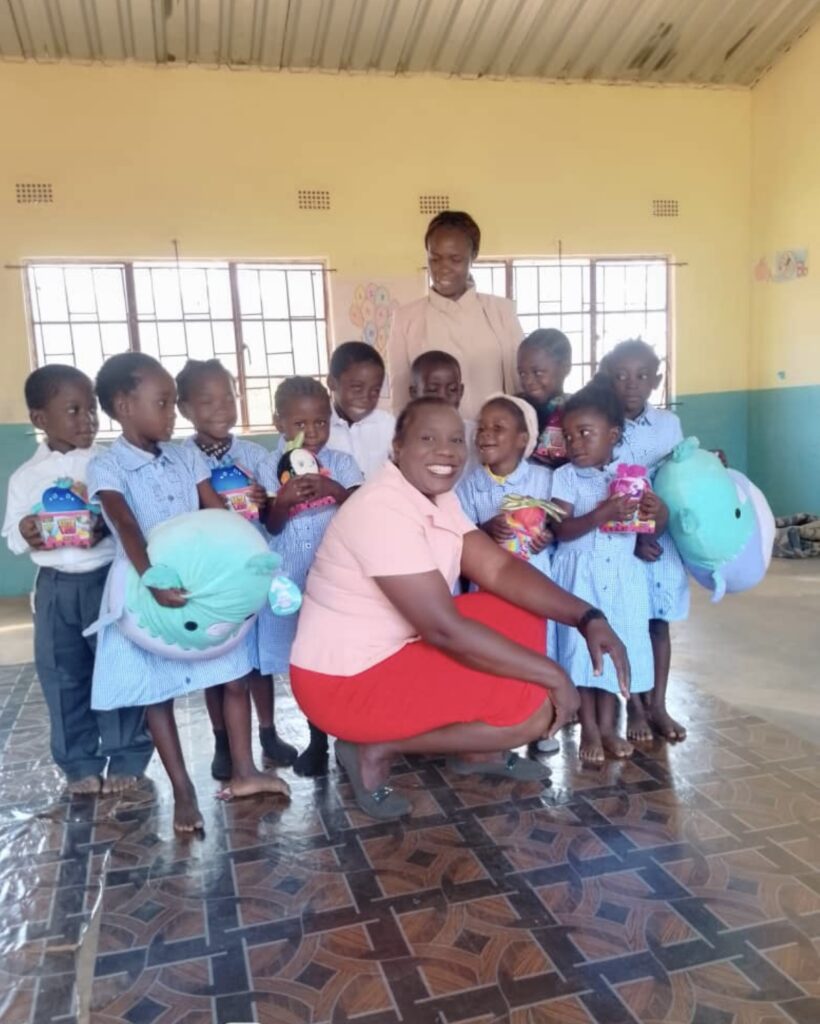
I was born in Mwinilunga district in The North Western Province in Zambia. My ever best life history was experienced during childhood days when I was still in primary school. I was involved in mushroom hunting with my mother and friends. We used to go in the bush in search of mushroom for consumption and for sell. The money we got from selling the mushrooms was usually spent to buy school books, pencils and body lotion. In North-Western province there are a variety of mushrooms. To mention a few: kachinani, wuhavwa, wusaleli, wukonzu, wunja, ndondola. Mushrooms have different tastes, but they all taste good. However, some of the varieties are poisonous while some are medicinal in nature. Although I became a teacher after completing my secondary education, I still have interest in wild mushroom hunting. I usually go in the bush with my follow women to collect some mainly for home consumption. There are times when I go alone or with my children. I have taught all my five children (three boys and two girls) how to hunt and cook wild mushrooms. I believe this activity, which is very common in my setting, will help them when they grow up. I am Primary School teacher in the Mwinilunga district. I teach mainly at primary grades, in lower level ECC to 4 in all the subjects. My teaching philosophy centers around creating and engaging student learning environments that foster curiosity, critical thinking and innovation. I’m committed to helping my students grow into compassionate and knowledgeable people, better citizens and thoughtful individuals (seen in the photo is a class of Ece Reception at my school).
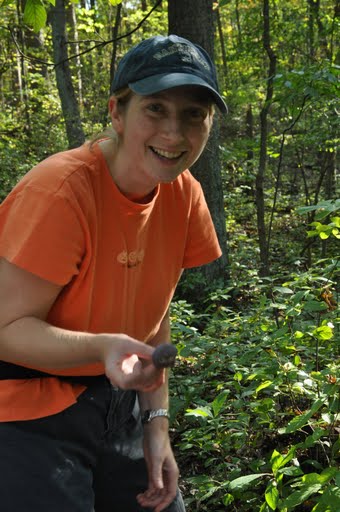
Elizabeth Barron is professor of environmental geography at the Norwegian University of Science and Technology (NTNU), in Trondheim, Norway. She is trained as an interdisciplinary scholar with degrees in conservation biology, anthropology, forest ecology and geography. She is the chair of the Fungal Use Group (FUse), a joint venture between the Fungal Conservation Committee and the Sustainable Use and Livelihoods Speciality Group (SULi) at the International Union for the Conservation of Nature (IUCN). From 2018 – 2022 she served as coordinating lead author on the IPBES Sustainable Use Assessment, resulting in a major increase in the representation of fungi in that report. Her research interests center around the knowledge politics of biodiversity conservation, with a special interest in how knowledge developed and stewarded in different scientific and lay communities can come together to produce more productive and meaningful conservation action. This work extends to envisioning how fungal biology and ecology can contribute to re-thinking conservation politics and practice. Most recently, she is developing a new project alongside colleagues from NTNU, SULi, FUse, FunCC, and the IUCN CEESP-SSC Biodiversity and Family Planning Inter-Commission on how to co-create fungal conservation and access to public health in sub-Saharan Africa.
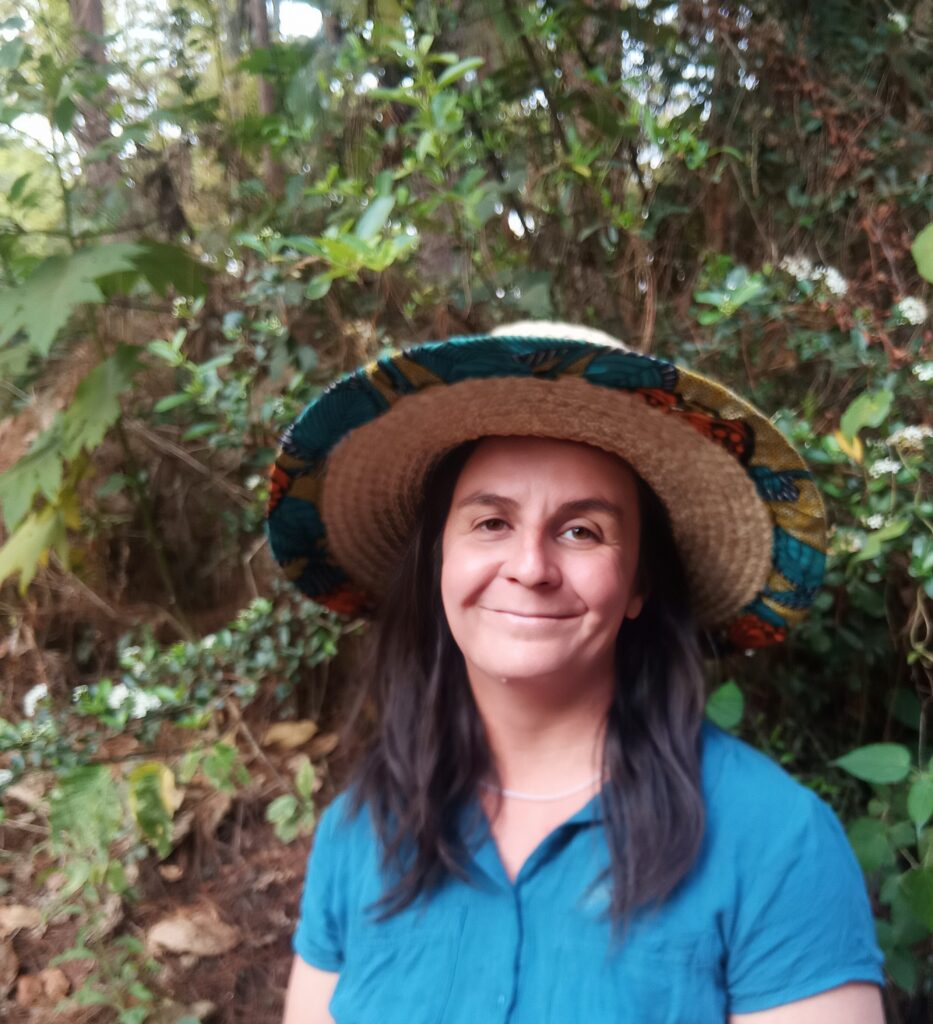
With a career in Nature Conservation and a degree in Botany (UKZN), Kate also has 12 years experience in natural product research and development, and has established small-scale food and cosmetic businesses that source ingredients from wild harvesters and organic growers.
She is passionate about working with rural women in Malawi, to help them value their natural resource knowledge, and find ways to improve the economic value of their wild-collected products through sustainable harvesting, improved post-harvest practices, value-addition and creative packaging and marketing strategies.
Kate grew up in rural KwaZulu-Natal, South Africa, and moved to Malawi many years ago, where she lives with her husband and their five nature-loving children.
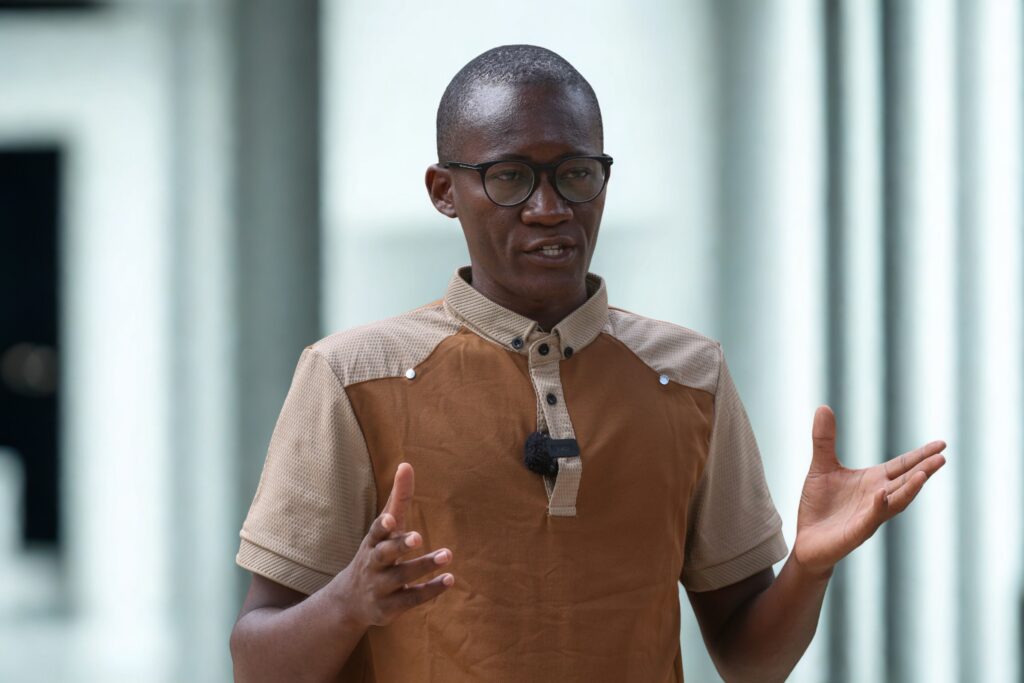
Joel Bisoma is an entrepreneur and sustainability advocate, serving as Executive Director of UyogaPlus and GreenFungi Company. He leads innovations in mushroom cultivation, medicinal fungi, and organic farming, empowering farmers across Tanzania with training and sustainable techniques. He holds a B.Sc. in Microbiology and Chemistry from the University of Dar es Salaam (2020) and has completed international trainings on Juncao Technology in China and Rwanda. Joel is also engaged in renewable energy solutions through Bio-Village, which integrates biogas, organic farming, and solar energy. His work blends innovation,
environmental stewardship, and community impact, with a mission to inspire youth and
communities to embrace agriculture as a profitable, eco-friendly venture.
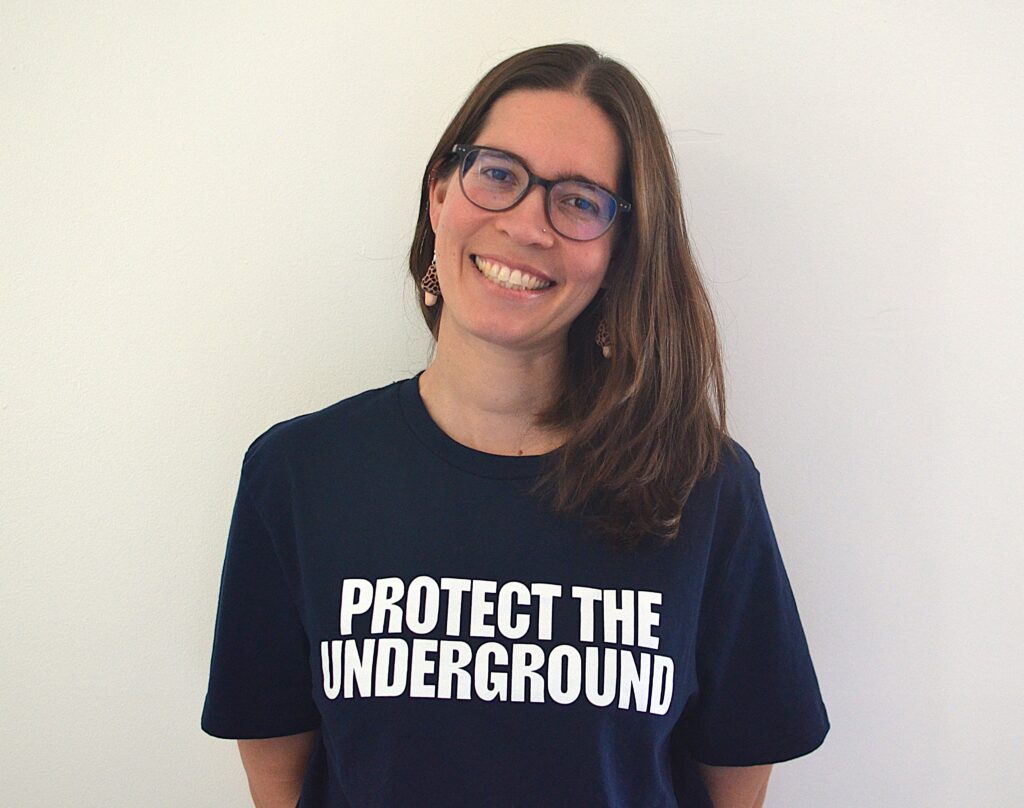
Cátia is a conservation biologist with experience in conservation assessments, planning and action. She is the Biodiversity Conservation Strategist at the Society for the Protection of Underground Networks (SPUN), advocating for the protection and restoration of mycorrhizal fungi. She is also a member of the IUCN Species Survival Commission, and supported the creation of the Fungal and Plant Use groups within the IUCN CEESP-SSC Sustainable Use and Livelihoods Specialist Group, and the IUCN SSC Succulent Plant Illegal Trade Task Force. Cátia is highly involved in the Global Strategy for Fungal Conservation, which aligns a research strategy with the CBD Global Biodiversity Framework targets. This Strategy will connect mycologists, decision-makers, and governments to ensure the effective conservation and protection of fungi informed by scientific evidence. Previously, Cátia worked at the Royal Botanic Gardens, Kew, and was part of the team leading the State of the World’s Plants and Fungi reports. She is an IUCN Red List Trainer and co-authored more than 500 extinction risk assessments for the IUCN Red List of Threatened Species.
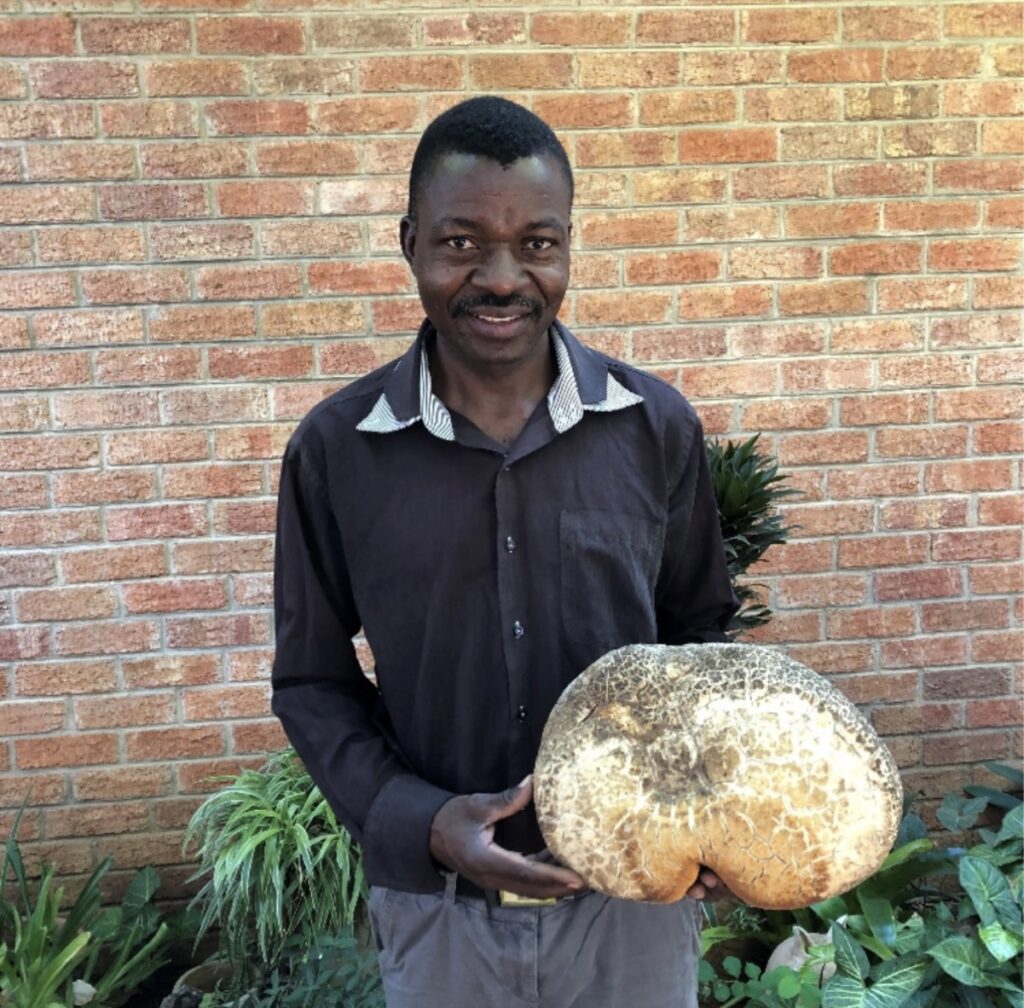
As Proffesor Ndlovu, I was born into a large family of seven children, with four brothers and three sisters, although sadly one of my sisters passed away. Growing up in the rural areas of Ndlovu Village in Lupane, Matabeleland North, Zimbabwe, shaped my early life. I attended Ndlovu Primary School and later Mabhikwa High School for my secondary education. After completing my ordinary level education, I pursued a career as a game scout, training with Malangani John Sharp Safaris in the early 2000s. This led to my role at the Forestry Commission Zimbabwe, where I worked as a game scout. A significant turning point came in 2013 when I met Cathy Sharp while assisting her with mushroom research. We have collaborated since then.
During this time, I expanded my skills through various courses, including a human-wildlife conflict course at Mushandike College and an herbarium training course at the National Botanical Gardens in Harare. In my personal life, I am customarily married to Sungai, and we have two children, a boy and a
girl.
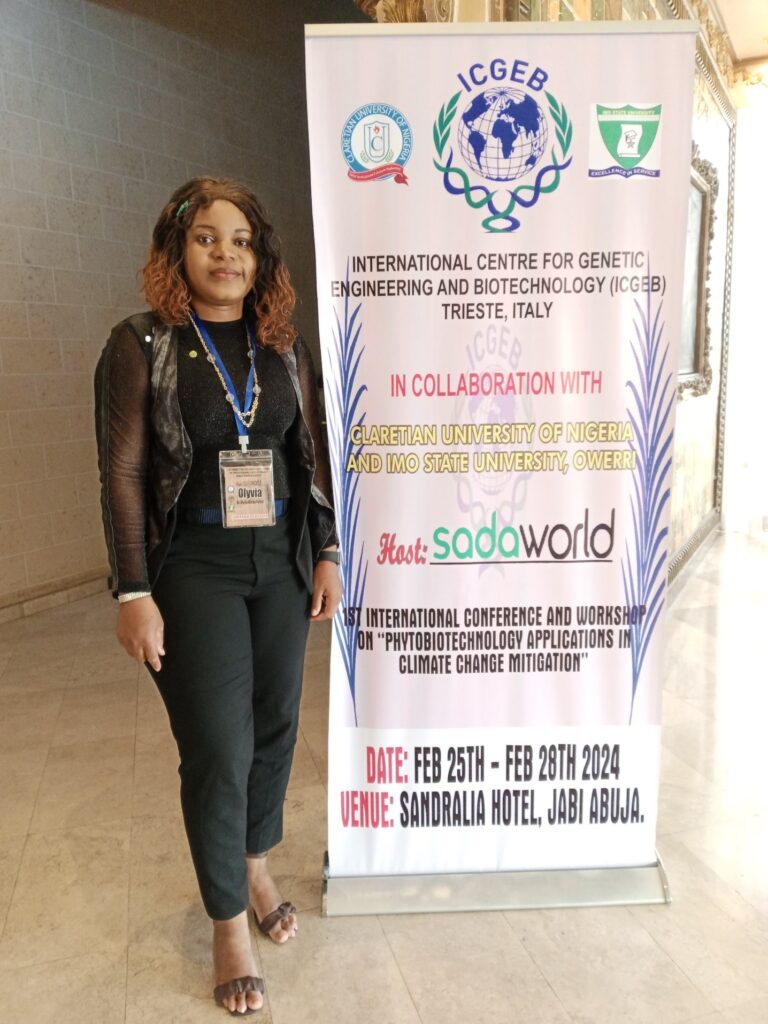
Ph.D. in Tropical Mycology – University of Parakou, Benin
Olyvia Gwladys Fadeyi is a Beninese researcher specializing in ethnomycology, with a particular focus on the nutritional and medicinal valorization of wild mushrooms and biodiversity conservation. She earned her Ph.D. with highest honors and jury congratulations at the University of Parakou in June 2025, with a dissertation entitled Ethnomycological Investigations, Food and Medicinal Potential of Wild Fungi in Benin. She also holds a Master’s degree (2018, Very Honorable) and a Bachelor’s degree (2014, Good) in Agronomy, both focused on ethnomycology and chemical analysis of fungi. A recipient of several international awards, including the L’Oréal-UNESCO Women in Science Award (2022), the RAANA Trophy for Women’s Leadership (2024), the Best Oral Presentation Award at the International COPED6BVZ Symposium in Brazzaville (2019), and the Best Master’s Student Award at the University of Parakou (2019), Olyvia has participated in numerous international conferences and
seminars in South Korea, Nigeria, Namibia, Cameroon, and Benin. Her research has been published in reputable scientific journals such as Phytochemistry Letters, Advances in Biological Chemistry, and Open Journal of Applied Sciences.
She has further expanded her expertise through research stays at international laboratories, including Goethe University Frankfurt (Germany) and the University of Dschang (Cameroon). Her work has been supported by prestigious funding sources, including: Alexander von Humboldt Foundation International Centre for Genetic Engineering and Biotechnology (ICGEB), Trieste, Italy Regional Universities Forum for Capacity Building in Agriculture (RUFORUM) FunTrAf Project (BMBF, Germany) AGNES-PAWS Mobility Grant
An active member of the Association of Women for Education, Training, and Scientific Research in Benin (AFEFRS-BENIN), Olyvia contributes to food security, the strengthening of public health policies, and scientific innovation in Africa.
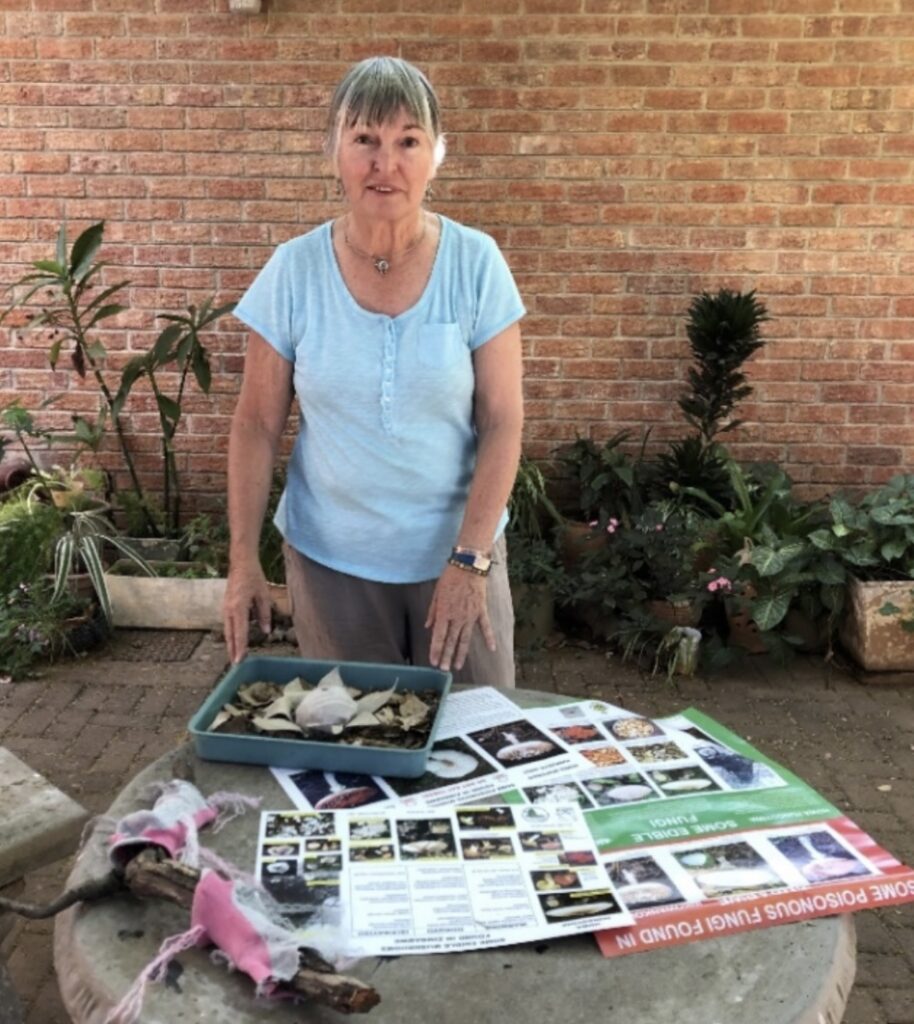
Mrs Cathy Sharp’s interest in Fungi was fueled by Dr Desiree Cole at the University of Zimbabwe in 1976 and since
then the mycelial threads have grown and spread far and wide, as true mycorrhizae should. She has consulted in many cases of mushroom poisoning which led to the publication of Posters to increase public awareness. Her path was set in 1998 by scientific collaboration with Prof. Jan Rammeloo and his staff at the Botanic Garden, Meise and with Annemieke Verbeken in Ghent University, both in Belgium. She was awarded an MPhil at Aberdeen University in Scotland, as a foreign, part-time, long-distance student.
A Fungi Display was set up at the Natural History Museum of Zimbabwe, in Bulawayo, and is the centre for many educational activities – Mushroom Parties, Mushroom Art Competitions, Museum Day and so forth. School visits are a regular feature during the rainy season where the children go on walks into their ‘outdoor classroom’ to find fungi, study them with magnifying glasses and discuss them. Similarly, Mushroom Walks are offered to the Public wherever possible and are very well attended. Fungi were included in the Zimbabwean National Junior Curriculum until recently when this and other
important subjects were removed. This will be rectified as soon as possible. After publishing many papers, book chapters, three pocket-guides on Zimbabwe’s Fungi, and many new species, the focus is now on the compilation of over 40 years of data into a major Book on Fungi and the surrounding Miombo Eco-Region. Other major works on the side include the ecology of Termitomyces and their termites, ecology of ectomycorrhizal fungi in miombo woodland, knowledge of Fungi amongst school children and some community work.
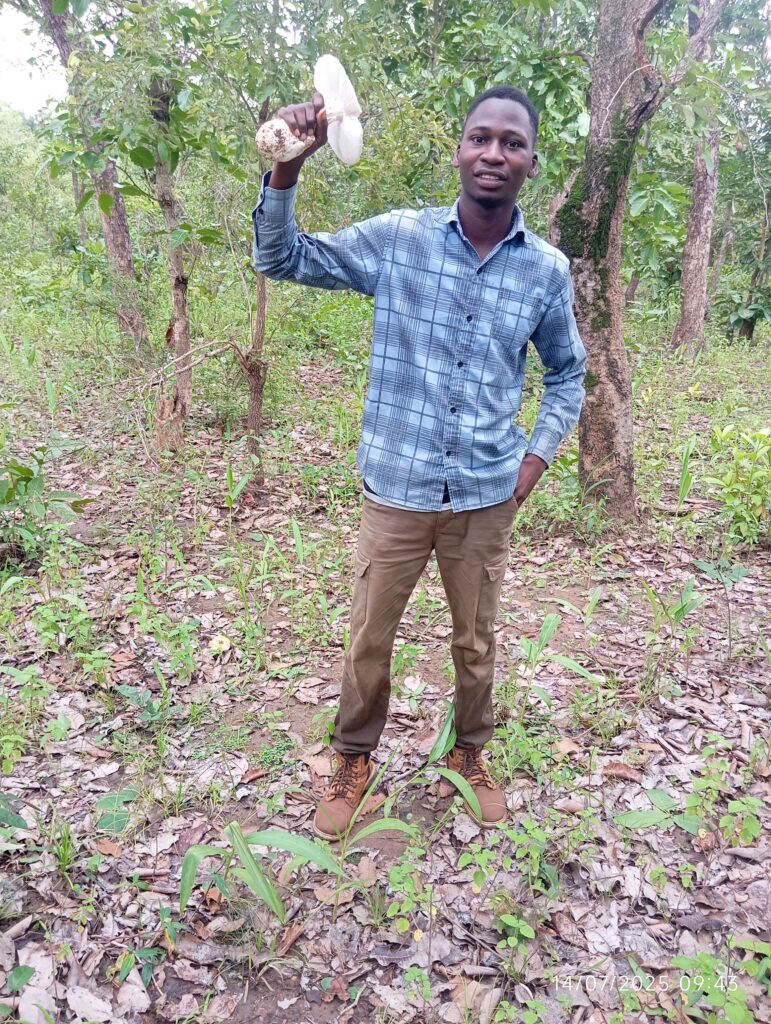
Ulrich Yorou is a young researcher in agroecology and applied mycology, currently completing a Professional Bachelor’s degree in Natural Resource Management at the Faculty of Agronomy, University of Parakou (Benin). As a member of the MYTHIPS Laboratory, his research focuses on the temporal dynamics of ectomycorrhizal fungi in the Ouémé Supérieur classified forest and their implications for social well-being. He has also taken part in mycological surveys in the Opkara and N’Dali forests and has been trained in oyster mushroom production. Beyond research, Ulrich is actively involved in academic and community leadership. He served as 1st Vice President of the Faculty of Agronomy Students’ Association and is currently President of IAAS-UP (International Association of Students in Agriculture and Related Sciences – University of Parakou chapter). He has strengthened his skills through international online trainings on conservation, climate change, and sustainability (FAO, AFD Campus, IOM, UNCC:Learn, IUCN, FUN, IFDD). Recognized for his entrepreneurial spirit, Ulrich is a laureate of BeniBiz by Technoserve (2024) and the Tony Elumelu Foundation (2025). He is committed to promoting mushrooms as innovative solutions for food security, health, circular economy, and climate resilience.
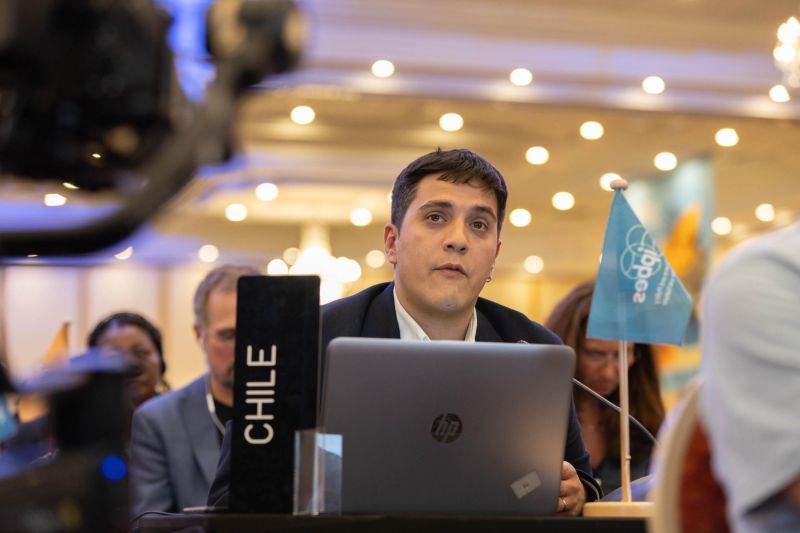
Geographer with a Master’s degree in Geography, I am currently the International Policy Lead at the Fungi Foundation and a PhD student in Geography at the Universitat Autónoma de Barcelona. My work focuses on advancing global awareness and policy integration of fungal biodiversity conservation, leading international negotiations and partnerships to position fungi as a critical component of biodiversity and ecosystem restoration.
Previously, I served as Technical Advisor on Biodiversity Conservation at Chile’s Ministry of Environment, acting as National Focal Point for the Convention on Biological Diversity (CBD) and for the Intergovernmental Science-Policy Platform on Biodiversity and Ecosystem Services (IPBES). In this capacity, I represented Chile as a negotiator at CBD COP 15 and 16, SBI 4, and the IPBES 11th Plenary. I also led Chile’s role in co-launching the Pledge for Fungal Conservation with the UK at CBD COP 16, which secured the inclusion of fungi within the CBD framework.
My work has spanned the development of innovative policy and financial instruments — such as the Sustainability-Linked Bonds Framework to achieve the 30×30 target of the KMGBF in Chile — the coordination of Chile’s National Biodiversity Strategies and Action Plans, and advisory roles in international initiatives like the Business Action Plan for Biodiversity and the Natural Capital Committee of Chile in partnership with Stanford University.
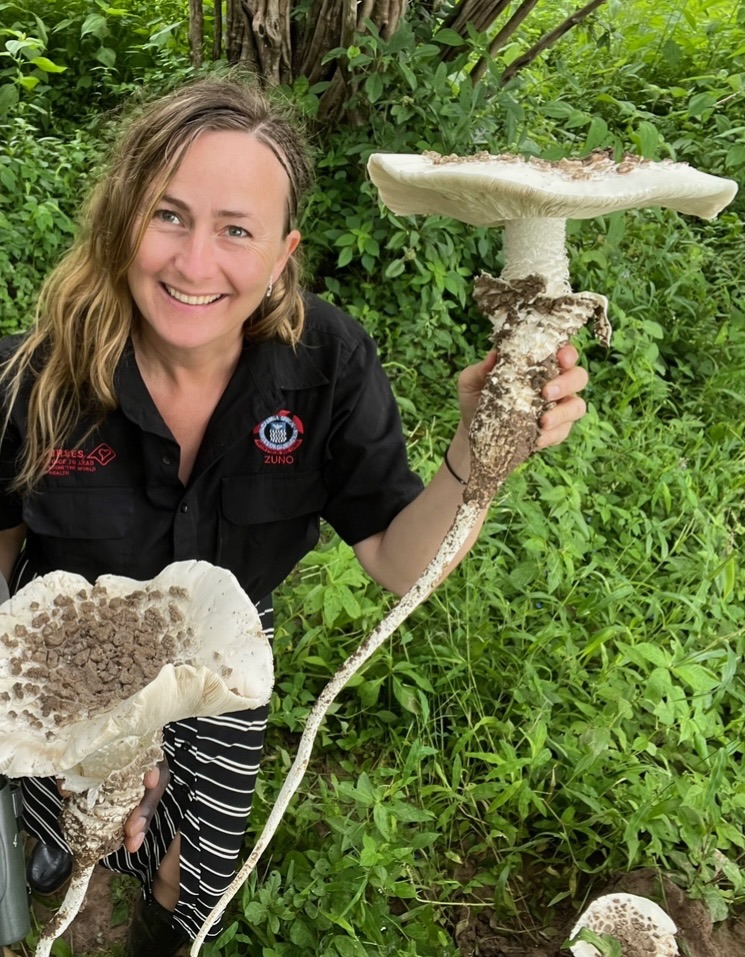
Mai Løvaas was born and raised in Norway and has lived in California for many years. She began studying plants, mushrooms and ethnobiology in 2012 while attending the Berkeley Herbal Center, later incorporating her passion for fungi into her MSc in Global Health at the Norwegian University of Science and Technology (NTNU) in Trondheim. For her master’s she did extensive fieldwork in Zambia and wrote her thesis titled Experiences of Female Mushroom Hunters in Zambian Miombo Woodlands: Food, Medicine, Livelihoods and Environmental Change.
In collaboration with ethnomycologist Ingvar Svanberg she has written the article How Funnel Chanterelle (Craterellus tubaeformis) Became an Urban Forager Favorite in Scandinavia, published in Journal of Ethnobiology and Ethnomedicine.
In Norway Mai is a certified mushroom identification expert and a member of The Norwegian Association for Mycology and Foraging. During the fall season she can often be found guiding forays in the forest or at mushroom identification stations across Norway, helping foragers distinguish between edible and poisonous species.
Email: mailovaas@gmail.com IG: @maiwildmedicinals
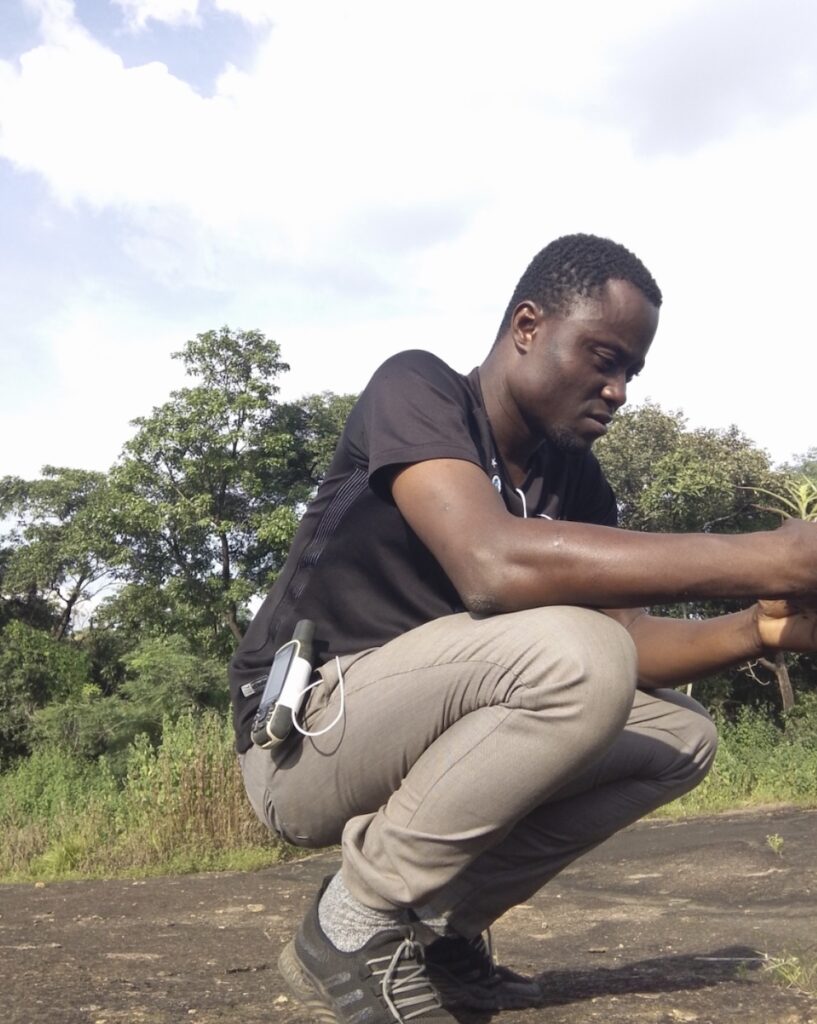
Wilfrid Kingnidé Adjimoti is a PhD candidate in Monitoring and Biodiversity Conservation at the University of Parakou, Benin Republic. He conducts his research under the Fungal Conservation in Sub-Saharan Africa project at the Laboratory of Tropical Mycology and Plant-Soil Fungi Interactions, Faculty of Agronomy. His doctoral research focuses on assessing the sustainability of wild edible mushroom exploitation in Benin, with a particular emphasis on its role in poverty reduction and gender inequality mitigation. Specifically, he examines how wild edible mushrooms contribute to household food security and income generation, aiming to highlight their socio-economic importance and inform policies that promote sustainable use. Wilfrid aspires to become a leading expert in sustainable fungal resource management and biodiversity conservation in West Africa. He aims to develop innovative
strategies that integrate scientific research with local knowledge to enhance rural
livelihoods, support gender equity, and strengthen climate-resilient food systems across the region.
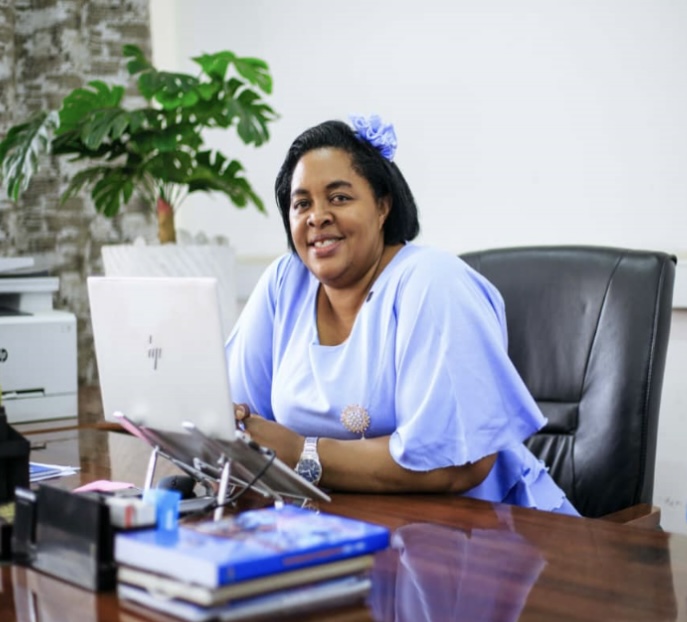
Professor Donatha Damian Tibuhwa (PhD) is a Professor of Microbiology in the Department of Molecular Biology and Biotechnology at the University of Dar es Salaam (UDSM), where she also serves as the Director of Quality Assurance. She holds a Bachelor’s and Master’s degree in Biological Sciences from the University of Dar es Salaam, and a PhD in Molecular Biology specializing in Microbiology, obtained through a joint program between the University of Dar es Salaam and Uppsala University, Sweden. Professor Tibuhwa is a renowned mycologist whose research has made significant contributions to the understanding of fungal diversity, taxonomy, and biotechnology applications of fungi in East Africa and beyond. Her work integrates molecular techniques with classical taxonomy to enhance the documentation, conservation, and sustainable utilization of fungal biodiversity.
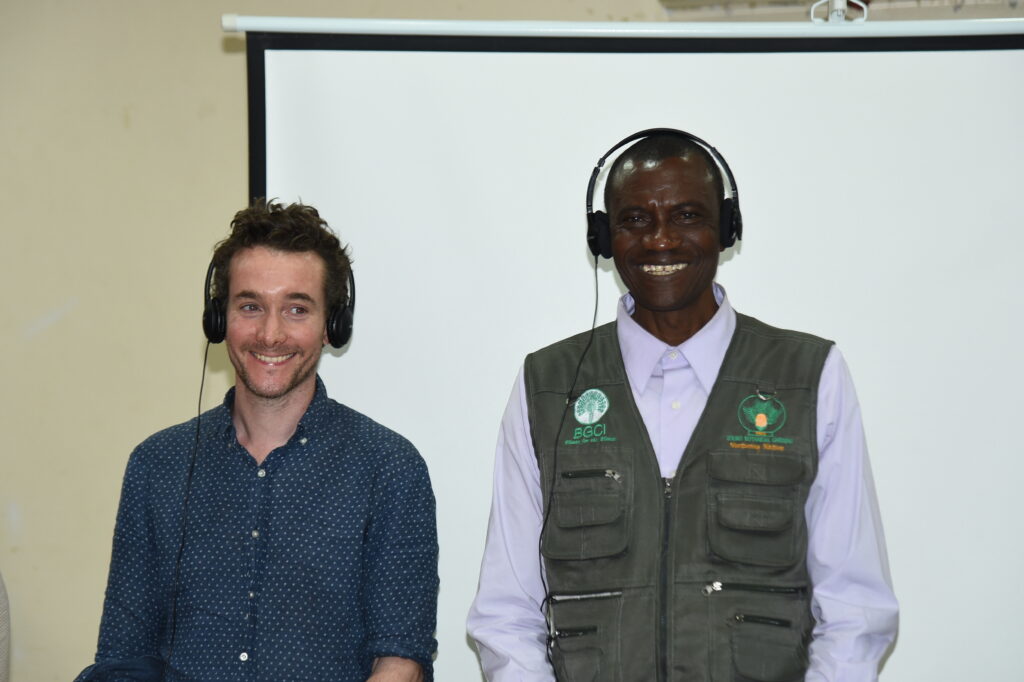
Alex Hudson is acting head of conservation: planning & action at Botanic Gardens Conservation International, where he has worked since 2019 on projects in Africa, Indian Ocean Islands and Tajikistan. The projects focus on the conservation and restoration of endangered species as well as sustainable utilisation of plant and fungal resources. This included a Malawi project investigating the sustainable use and market developments of products from wild fungi and plants, in collaboration with FairWild, Mount Mulanje Conservation Trust, WeForest and the Forestry Research Institute of Malawi. Alex has a Masters degrees in Conservation Science from Imperial College, London. Alex is also a member of IUCN CEESP-SSC Sustainable Use and Livelihoods Specialist group and the Fungal and Plant Use Groups within.
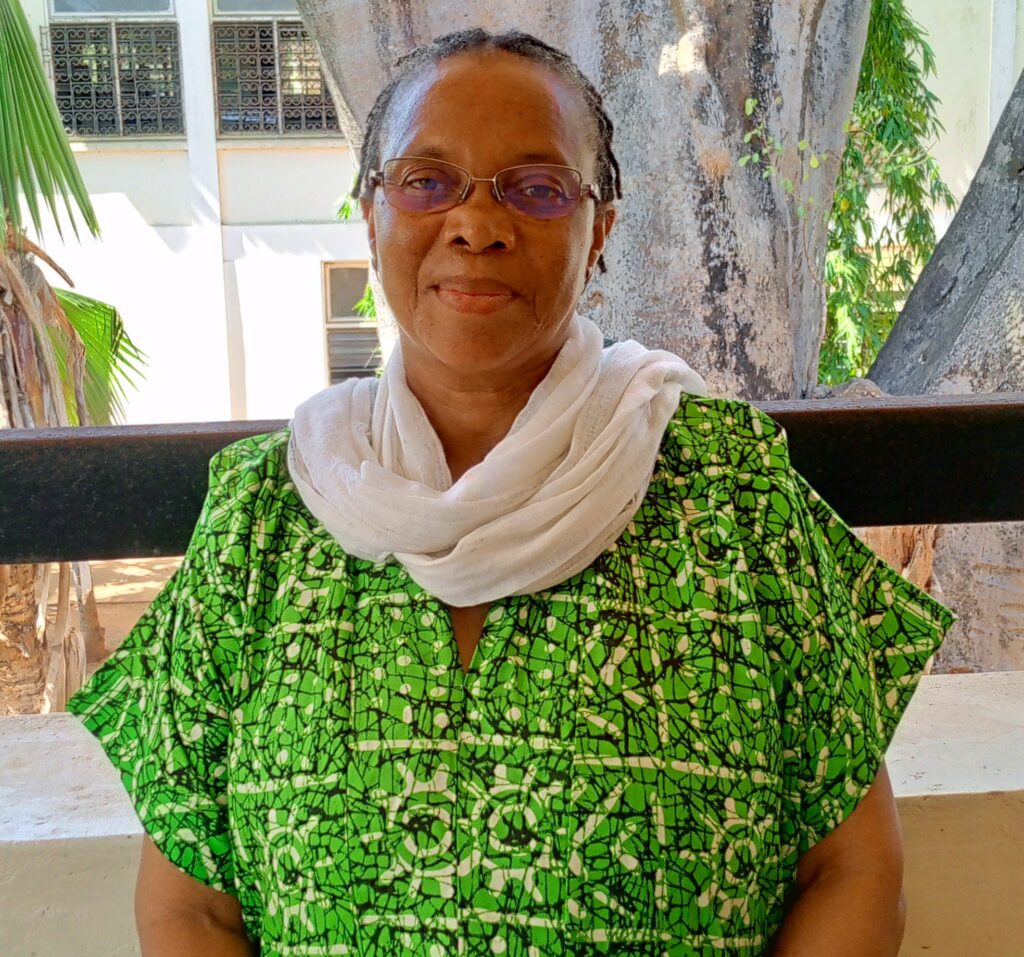
Dr. Joyce Mnyazi Jefwa is a highly accomplished scientist, academic, and mycologist with over 30 years of experience in teaching, research, and biodiversity conservation. She holds a PhD in Botany (University of Pretoria, 2004) specializing in the taxonomy and ecology of arbuscular mycorrhizal fungi (AMF), Masters in Soil Fertility, specializing in soil biology from Kent University UK, and Bed in Botany major and Zoology from Kenyatta university, and postgraduate Diploma in Biosafety and Biotechnology from Ghent University Belgium. She has
made significant contributions to fungal taxonomy, soil microbiology, and ecosystem restoration in Africa. She has served as Vice President of the African Mycological Association, Chair of the IUCN Commission for Ecosystem Management (Eastern & Southern Africa), and has been a Board Member for Kenya National Accreditation Services (KENAS) and the National Biosafety Authority (NBA). She is currently a Senior Lecturer in Botany at Pwani University, Kenya, and Postdoctoral fellow at CIAT/TSBF Rwanda. She was a Scientist at CIAT/TSBF, Senior Scientist and head of Mycology at the National Museums of Kenya (NMK); Postgraduate and Doctoral fellow at the World Agroforestry Centre (ICRAF) Malawi; and a consultant with
Bioversity International and WorldFish in Zambia, IITA, FAO and CTA Netherlands.
Her areas of research and expertise are mycology and taxonomy, curation, plant and fungal ecology, soil microbiological quality and standards of commercial biological products, mushroom domestication and conservation, mycorrhiza (AMF, ecto-and orchid),
micropropagation, Indigenous knowledge, nature based solutions, and ecosystem restoration and biodiversity management and conservation. She is Chair at IUCN Commission for Ecosystem Management (Eastern & Southern Africa), a member of IUCN Species Survival Commission
(Fungal Conservation Committee), former Vice President at African Mycological Association(2007–2013), former Chair at Habitat Restoration Initiative (HARI), Nature Kenya and a member of International Society of Fungal Conservation (ISFC). Some of her awards are the Ford Foundation Fellowship for Women in Science in Eastern and Southern Africa – ICRAF, the Rockefeller Foundation PhD Scholarship – ICRAF, The Earthwatch Fellowship by the European Commission at the National Museums of Kenya (NMK), Darwin Initiative at the NMK and several British Council training awards; MSc and techniques in identification of mycorrhiza, macrofungi and lichen.
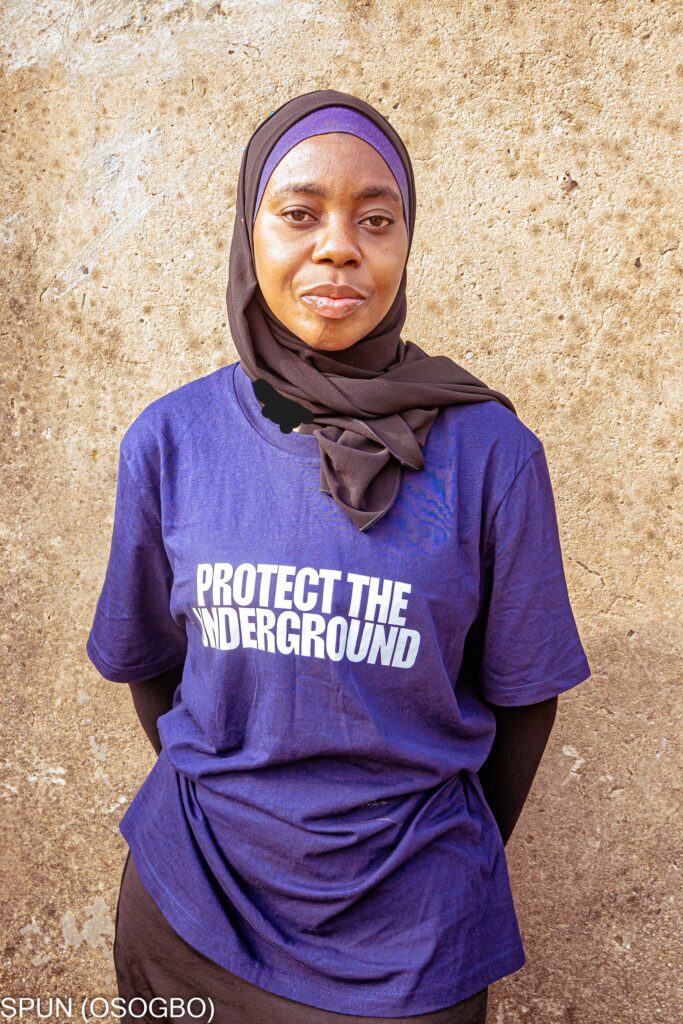
I am a Food and Industrial Microbiologist and Lecturer at the Federal University of Agriculture, Abeokuta, Nigeria. My research focuses on food safety, microbial ecology, and fungal biotechnology, with a strong interest in the diversity and functional roles of arbuscular mycorrhizal fungi (AMF) in sustainable agriculture.
As an early-career researcher, I am particularly interested in exploring the potential of indigenous AMF species as biocontrol agents against mycotoxigenic fungi such as Aspergillus and Fusarium species in maize and other staple crops. My work aims to enhance soil fertility, plant resilience, and food security while promoting environmentally friendly farming practices. I am also involved in research on mycotoxin mitigation and the impact of climate change on fungal biodiversity and contamination risks in food systems. I am currently a SPUN (Society for the Protection of Underground Networks) Associate,
contributing to the global effort to map, conserve, and understand underground fungal networks. Recently, I received a research grant as a Co-Investigator on a project examining the effects of Azo dyes on mycorrhizal community structure and functionality, which aligns with my growing interest in the ecological impacts of pollutants on soil microbial communities. I am passionate about fungal conservation and its role in maintaining ecological balance, promoting soil health, and enhancing food system resilience. My participation in the Fungal
Conservation Conference in Benin reflects my commitment to learning, sharing knowledge, and building collaborations with other researchers dedicated to understanding and preserving fungal diversity across Africa and beyond.
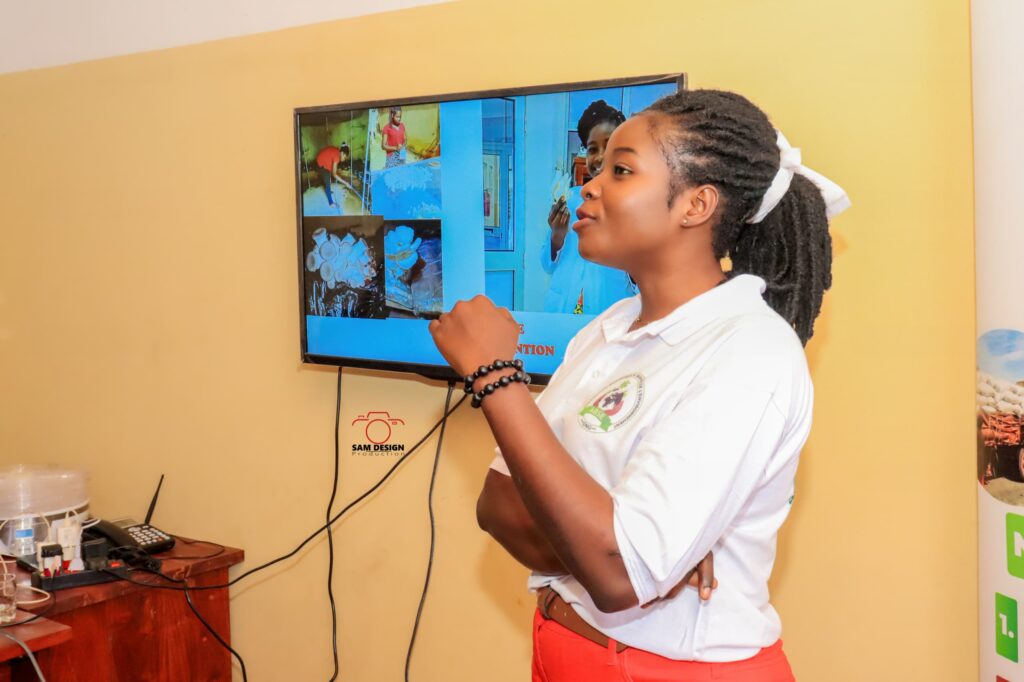
Naomie Lucréce Yabi is an Agronomist Engineer from the University of Parakou, currently serving as a Research Assistant and Head of Edible Mushroom Production at the Laboratory of Tropical Mycology and Plant–Soil Fungal Interactions (MyTIPS). Passionate about biodiversity and the deep connections between nature and fungi, she has a strong interest in food security and women’s empowerment. Her curiosity about how fungi can contribute to human well-being and nutrition led her to focus on large-scale mushroom production to ensure availability and promote sustainable use. For her undergraduate research, she worked on the production of mushroom spawn for multiple species, and during her Master’s studies, she focused on the cultivation of edible mushrooms, involving urban women to strengthen their economic autonomy. The findings of her Master’s research have been submitted for publication in Scientia Horticulturae (Elsevier) and are currently under editorial review. Naomie is also an active member of Parakou focal point of the NGO Save Our Planet, where she contributes to initiatives aimed at environmental conservation and climate change mitigation. For her, nature is humanity’s most vital heritage, and fungi represent a crucial key to preserving it. To conserve fungi is, in essence, to conserve life itself.


Bio

Bio

Bio


Bio

Bio

Bio
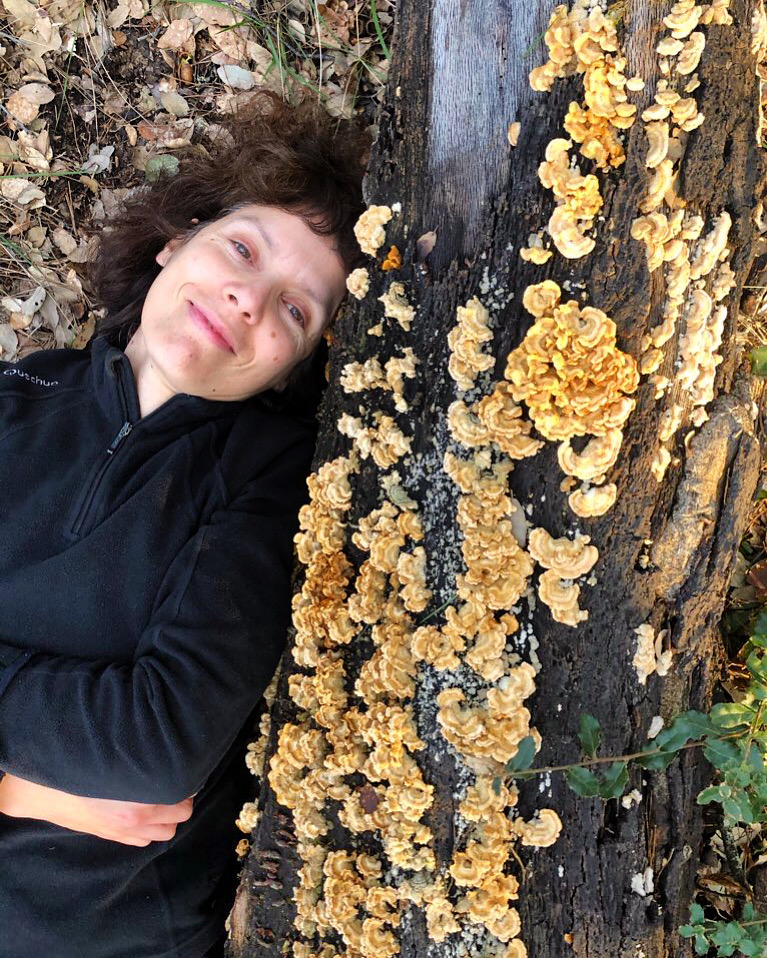
Susana C. Gonçalves is a fungal ecologist turned conservationist based in Coimbra, Portugal. She coordinates the MyCoLAB research group at the Center for Functional Ecology—Science for People and the Planet, where the focus is on fungal diversity and ecology, their uses and conservation, including in applied contexts. She also maintains an active outreach program that celebrates fungi to promote conservation. Susana is chair of the European Council for the Conservation of Fungi (ECCF) and a member of the Fungal Conservation Committee and the Mushrooms, Brackets, and Puffballs Specialist Group of the IUCN Species Survival Commission. Passionate about the human dimension of fungal conservation, Susana is enthusiastic about citizen science and community-centered conservation. She is an iNaturalist ambassador and a member of the IUCN Citizen Science Task Force. Through the mentoring of a PhD student, she is currently collaborating with the women’s association “Ophola Mawa Orera” in the buffer zone of Gilé National Park in Mozambique to promote the use of fungi in sustainable local livelihoods.
Gender, Rights and Opportunities for Women – through Fungi